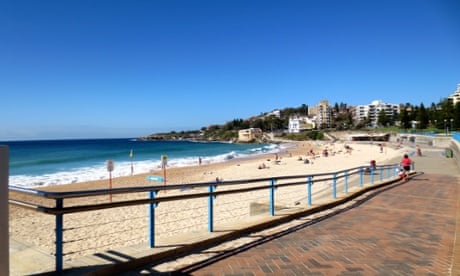Research can be an emotionally draining business, as our anonymous academic testifies. Mental health problems among UK academics are growing. New research from Australia shows that this is not just a UK problem, however.
The pressure to win high-status funding means that researchers go to extraordinary lengths to prepare their proposals, often sacrificing family time and personal relationships. During our research into the stressful process of applying for research grants, one researcher, typical of many, said, "My family hates my profession. Not just my partner and children, but my parents and siblings. The insecurity despite the crushing hours is a soul-destroying combination that is not sustainable."
Another common complaint was that the application deadline coincided with the Christmas holidays (which is the long summer holiday in Australia). "I have a young family and our lives are put on hold for three months at the worst possible time of year. We have to pay for childcare so there is a huge financial cost plus the personal cost of not being with my children," said one.
Moving the application deadline to later in the year would help researchers with children to better enjoy Christmas. But any move could just end up upsetting another section of the research community, such as those who also do lots of teaching. In such a high-pressure system, any change will inevitably upset some, and for some researchers the constant changes to the system are part of the problem. As one said, "[The system] is still a disaster […] but I'm used to it now so please don't change it to something new."
We think there is room for change, particularly when stress and dissatisfaction levels are so high. The system was streamlined last year to reduce the burden on applicants. This was a welcome change, but there are other frustrations with the system, such as the lack of feedback for failed applications.
What our research shows
Our previous research into research funding found that applying for grants was incredibly time-consuming, with over 550 years of researchers' time going into applying for just one grant round. No surprises there for researchers, although it was news to the wider community, and some political interest in the results did lead to positive changes to the Australian system.
Our latest research examines how applying for grants is stressful. "We know!" cries an anguished research community, but what was a surprise were the incredibly high levels of stress and dissatisfaction.
Of our 215 respondents — who were all health and medical researchers with experience of applying for funding — 93% said that they became stressed by the application process, 83% restricted their holidays during the grant-writing season, and 71% wanted major changes to the system.
A few researchers bucked the trend, with some even believing that the system should be tough to weed out the weaker researchers.
There is also a concern that creating a friendlier system would allow researchers to spend any spare time writing additional applications in order to increase their chances of winning funding.
A tough road for researchers
More applications can clog the system. But more applications can also be seen as a sign of a funding agency's popularity. A high volume of applications and low success rates increases the kudos of winning funding. In Australia this has created the perverse situation where money won from the "big two" (the Australian Research Council and the National Health and Medical Research Council) has a higher status than equivalent funding from other sources.
Submitting a funding application is analogous to submitting a tender for a contract: researchers are effectively submitting a tender for their career progression. The process of tendering for a continuing research career is a tough road for researchers and their families.
An evidence-based approach
What changes are needed to reduce this burden on applicants? For researchers, the answer is obvious: we should rely on evidence. This is particularly relevant given that we are talking about a system that itself funds evidence-based research. Anecdotally, researchers will tell each other about their experience of applying for funding. We have listened to the researchers and summarised their experiences to "state the bleeding obvious". As any researcher will also tell you, change cannot occur without evidence.
Adrian Barnett is a principal research fellow in the faculty of health at Queensland University of Technology. Follow him on Twitter @aidybarnett.
Danielle Herbert is a postdoctoral research fellow in the faculty of health at Queensland University of Technology.
Join the Higher Education Network for more comment, analysis and job opportunities, direct to your inbox. Follow us on Twitter @gdnhighered.

Comments (…)
Sign in or create your Guardian account to join the discussion